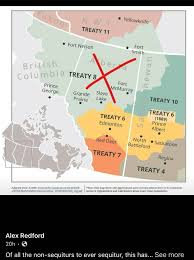
Introduction
The topic of Alberta separation has gained significant traction in recent years, as socio-economic challenges in the region have led to a growing sentiment for greater autonomy from the federal government. This issue is particularly relevant given Alberta’s unique resources, economy, and the perception of being overlooked in national policy-making.
Current Landscape
In recent polls, a noticeable percentage of Albertans have expressed support for the idea of separation from Canada. According to a September 2023 poll conducted by Leger, approximately 32% of respondents indicated they would consider supporting a separatist movement if Alberta’s economic challenges continue unabated.
The roots of this movement are deeply intertwined with the province’s economic struggles, primarily stemming from fluctuations in the oil market, which is a cornerstone of Alberta’s economy. The COVID-19 pandemic exacerbated these issues, leading to rising unemployment and exacerbating regional disparities in wealth and infrastructure development.
Political Reactions
The political landscape in Alberta is also responding to these sentiments. The United Conservative Party (UCP), currently in power, faces pressure to align their policies with the increasing preference for autonomy among their constituents. Recently, Premier Danielle Smith has made statements advocating for greater provincial powers, reflecting the public’s desire for provincial governance over federal intervention in matters affecting Alberta.
Challenges Ahead
While the idea of Alberta separation continues to resonate, it is fraught with challenges. Economically, separation would require a comprehensive analysis of fiscal policies, trade agreements, and resource management. Independently managing these aspects could prove complex, with potential chaos in the face of existing international dependencies and regulations.
Conclusion
The Alberta separation debate underscores broader discussions on identity, economic control, and governance across Canada. While calls for autonomy grow, the implications of separation ripple deeply into economic, political, and social structures. Moving forward, it remains to be seen whether this growing movement will translate into tangible political action or remain a topic of discussion among frustrated Albertans. The future of Alberta’s relationship with the rest of Canada holds significant importance for both Albertans and the broader Canadian landscape.



